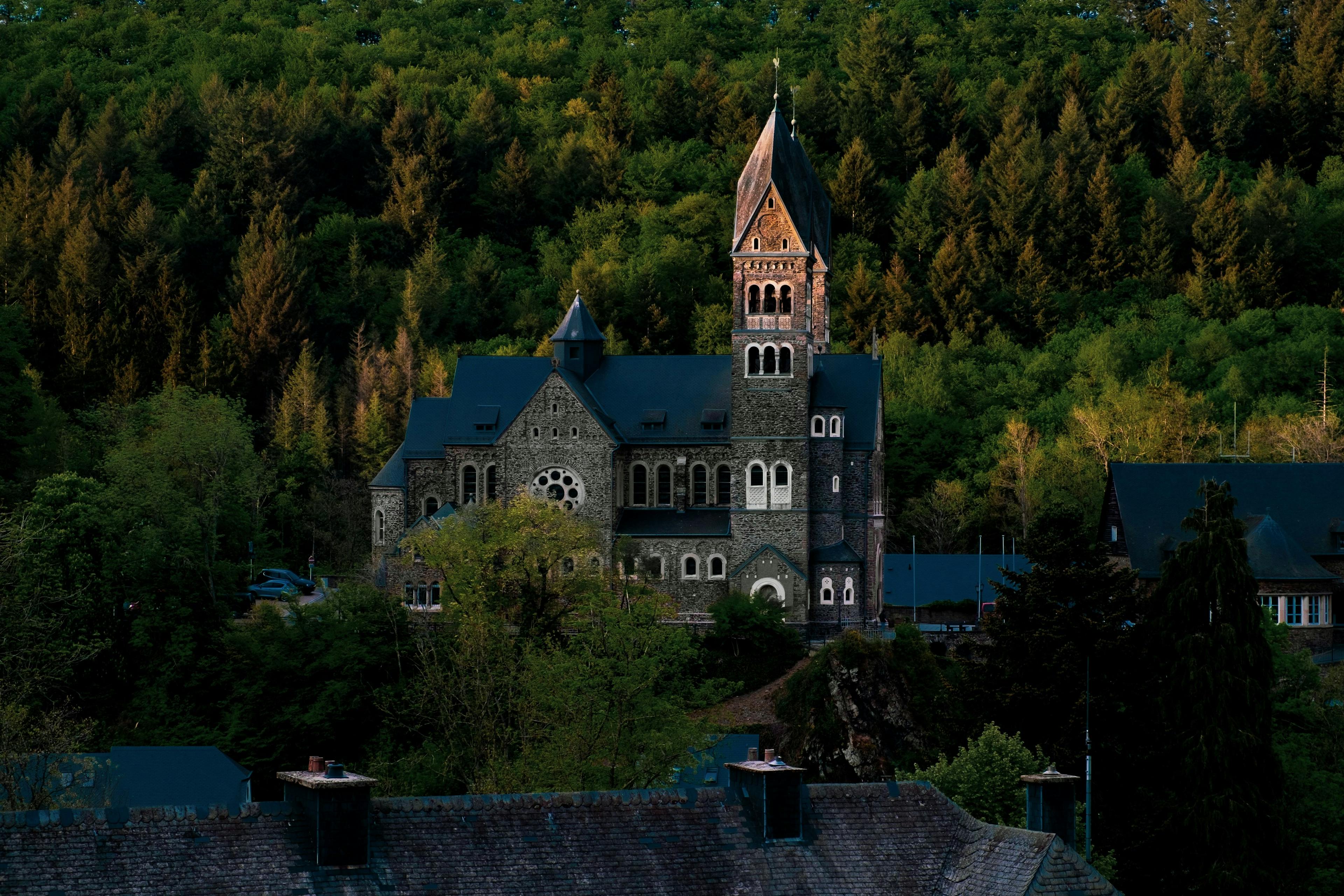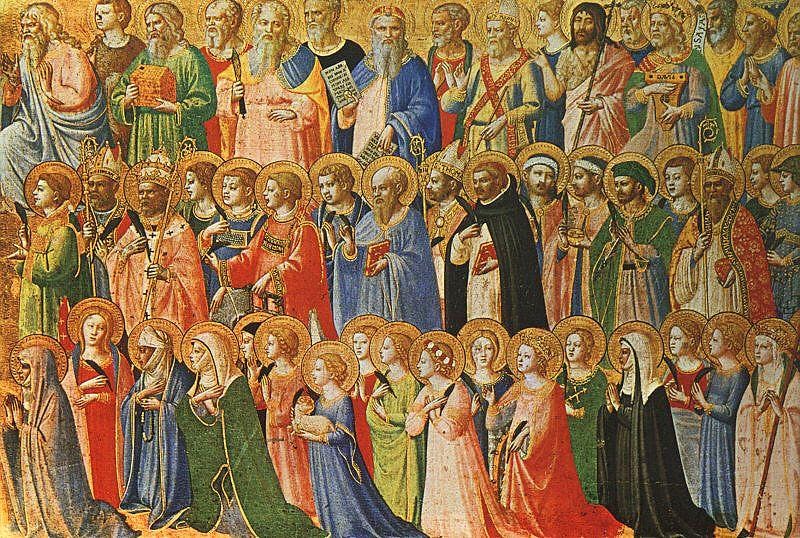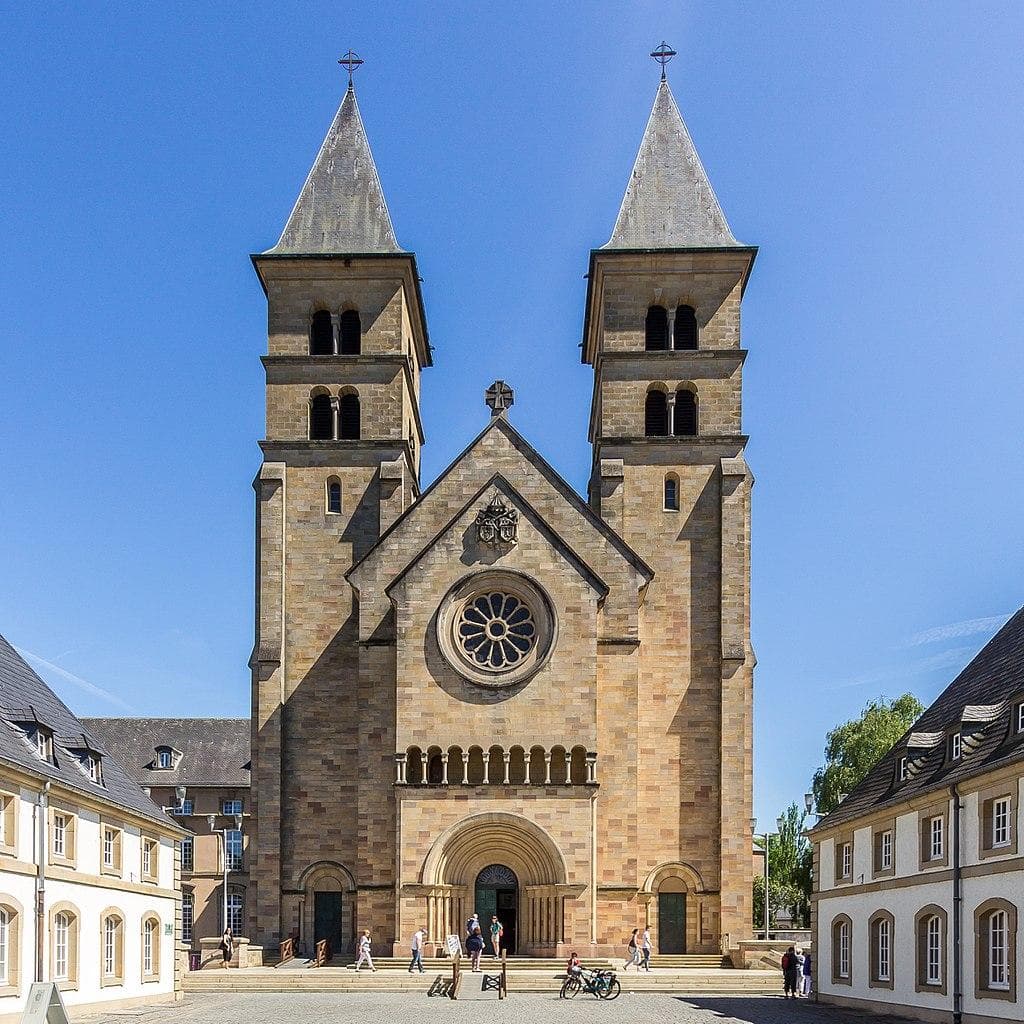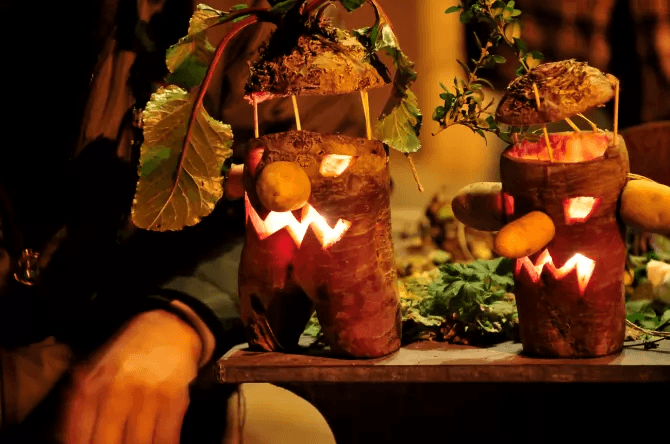
All Saints' Day and Deceased Day in Luxembourg: two autumn holidays
In Luxembourg, the first and second of November hold special significance as the country observes All Saints' Day and the Day of the Deceased.
November 1 is an official day off in Luxembourg.
Luxembourg's believers celebrate both holidays: they have their own unique traditions and rituals, which are of particular interest to anyone wishing to learn about the cultural heritage of the country.
In this article, we will take a look at the exciting and deeply thoughtful event that is celebrated in the Grand Duchy at the beginning of November.
All Saints' Day tradition in Luxembourg
In Luxembourg All Saints' Day, also known as All Hallows' Day, falls on the 1st of November. It is a Christian holiday that celebrates all the saints who have attained heaven including those who have not been canonized.
This day holds immense religious significance and is celebrated by various Catholic communities not only in Luxembourg but also around the world.
Origins of the All Saint's Day

The origins of All Saints' Day can be traced back to the early Christian practices of commemorating the deaths of individual martyrs who valiantly gave their lives in service to God.
However, the course of history, particularly the harrowing events of the Persecution of Diocletian, also known as the Great Persecution, led to a multitude of Christians being martyred by the Roman army. Faced with an overwhelming number of revered martyrs, the Church found it necessary to consolidate their commemoration into a single unified festivity.
Why is it celebrated on November 1st
Initially, various regions observed separate dates to honor all the martyrs collectively. The celebration of All Saints' Day in Rome and subsequently in the Western Church is linked to the conversion of the Pantheon.
In the late 4th century, the Pantheon had fallen into disuse, prompting Pope Boniface IV several decades later to transform it into a church and consecrate it as the Church of Santa Maria and Martyrs on May 13, 609. Since then, a feast dedicated to Santa Maria and the Martyrs has been celebrated on this date.
In the year 731, Pope Gregory III further solidified the tradition by consecrating a chapel within the old St. Peter's Basilica to venerate the saints who were previously honored in cemeteries and catacombs.
Some sources suggest that Gregory III dedicated the oratory on November 1st, a date that eventually became the Day of All Saints.
Combining these evolving traditions, along with the custom of offering votive masses in memory of numerous or all saints, a cohesive practice began to take shape. By the 8th century, this tradition had become deeply rooted, although the exact date of celebration varied.
Almost a century later, around 835, Pope Gregory IV unified the observance on November 1 and declared that the Feast of All Saints should be celebrated, solidifying its place as a significant autumn holiday of honoring all the saints who have played roles in the history of Christianity.
How is All Saints’ Day celebrated in Luxembourg
All Saints' Day is a public holiday in Luxembourg, and on this day, families observe long-standing traditions to honor their deceased loved ones. The day typically begins with attending a special mass, where prayers and remembrances are offered for the departed.
Following the religious service, families visit the cemeteries to pay their respects at the graves of their loved ones. It is a poignant moment of reflection, and they leave flowers, usually pansies or chrysanthemums, on the tombstones as a symbol of affection and remembrance.

In Luxembourg All Saints' Day is a public holiday, celebrated on November 1, allowing the nation to pay tribute to the deceased. In addition, this day falls within the school vacations of the same name, which in 2023 go from October 28 to November 5. Read more about school vacation variable dates in our special article.
Although the celebration of this day does not refer to any particular saint, in Luxembourg certain saints have greater relevance and are particularly appreciated because of their close ties with the country. Two of them are Saint Willibrord and Saint Cunigunde.
🙏 Saint Willibrord
He was a British Christian missionary, known as the first Bishop of Utrecht and a prominent member of the Anglo-Saxon mission. He is revered as the “Apostle to the Frisians and the historical Low Countries," encompassing regions such as Flanders and Luxembourg, and is venerated as a saint by various Christian denominations.
In Luxembourg, his notable contribution lies in the founding of the Abbey of Echternach in the year 698.
🙏 Saint Cunigunde
On the other hand, Saint Cunigunde was the daughter of Sigfrid I of Luxembourg, the recognized first count of Luxembourg, and was also Empress of the Holy Roman Empire by marriage to Holy Roman Emperor Henry II.
She is considered a saint in the Catholic Church and holds the revered title of patroness of Luxembourg. The Clausen Parish Church is dedicated to Saint Cunigunde, serving as a testament to her spiritual prominence and her lasting impact on the religious heritage of Luxembourg.

Day of the Deceased in Luxembourg
The Day of the Deceased, is a ritual observed in many cultures and religions, dedicated to commemorating the departed. This venerable tradition has persisted for over 3,000 years in some cultures, bearing profound significance in the hearts of the people.
The commemoration of the Day of the Deceased is closely linked to Catholic observances and takes place on November 2, though it is not a public holiday like All Saints' Day.
For the Catholic Church, this day serves as a remembrance for all those who have passed away in this world but are yet to enjoy the presence of God due to the purifying process they undergo in purgatory to atone for their sins.
Throughout Luxembourg, this occasion is marked by a religious ceremony and blessings for the graves. Families seize the opportunity to revisit cemeteries, engaging in the tradition of cleaning and tending to the resting places of their loved ones. It is a moment for relatives to come together, fostering a sense of unity and respect as they pay their respects to the departed members of their family and community.
The Day of the Deceased in Luxembourg holds deep emotional value, serving as a time of reflection, remembrance, and spiritual connection for the people of Luxembourg.
Trauliicht tradition

An intriguing aspect of All Saints' Day and the Day of the Deceased in Luxembourg is the Trauliicht tradition. This one has its roots in the northern regions of Luxembourg and is experiencing a revival recently.
Trauliicht means "lantern of the dead" in Luxembourgish and for this occasion, villagers hollow out beetroots and carve them into frightening faces.
Illuminated by candles, these eerie-looking Trauliichter are placed on village walls and in house windows, believed to protect homes from the spirits of the deceased and malevolent entities that are thought to be particularly active during this time.
The Trauliicht tradition has deep historical roots in the rocky landscapes of the Ardennes, in the northern part of the country, where it was a common practice until the 1970s. Since the 1990s, it has seen a resurgence, especially with the rise of the American version of Halloween.
Despite sharing similar origins, Trauliicht has managed to retain a more authentic and less commercialized essence compared to its overseas counterpart.
The Trauliicht tradition dates back to the 16th century and is unique to Luxembourg.
Frequently Asked Questions (FAQ)
Are there any unique regional traditions associated with All Saints' Day in Luxembourg
Is November 2nd a public holiday in Luxembourg
Who are the important saints associated with Luxembourg
Source: en.wikipedia.org, today.rtl.lu, delano.lu, luxembourg.public.lu, guichet.public.lu, fr.wikipedia.org
We took photos from these sources: Wikipedia, Raimond Klavins for Unsplash, Visit Luxembourg Facebook Page, Charles Buchler for Unsplash